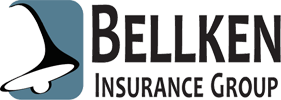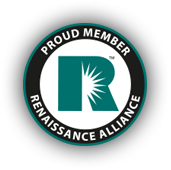Florida Painting Contractor Insurance
8:30am - 5:00pm Mon-Fri
Will Reply in 15min*
Top Recommended Business Insurance Policies

Index
Why Insurance is Crucial for Florida Painting Contractors
Types of Insurance Essential for Florida Painting Contractors
How to Choose the Right Insurance Policy
Cost Factors and How to Save on Insurance
Claims Process: What Florida Painting Contractors Should Expect
Contact Us
Phone
Location
6900 Tavistock Lakes Blvd, Suite 400, Orlando FL 32827
Operating as a painting contractor in Florida offers lucrative opportunities, thanks to the state’s booming construction and renovation markets. However, with opportunity comes risk. From property damage to workplace injuries, painting contractors face a variety of challenges that can disrupt business operations and lead to costly legal battles. That’s where insurance steps in — providing a safety net that protects both your business and your clients.
This comprehensive guide dives deep into everything painting contractors in Florida need to know about insurance. Whether you’re a seasoned professional or just starting out, understanding the types of coverage available, legal requirements, and best practices can save you from unexpected financial pitfalls.
Why Insurance is Crucial for Florida Painting Contractors
Florida’s unique climate and regulatory environment create specific risks for painting contractors. From hurricane season to the state’s strict licensing laws, insurance is not just a recommendation — it’s often a necessity.
Protecting Against Property Damage and Liability
Painting projects inherently involve working on client properties, sometimes at heights or in complex environments. Accidental damage to a client’s home or commercial building can lead to expensive repairs or legal claims. General liability insurance covers these risks, protecting contractors from lawsuits related to property damage or bodily injury.
For instance, if a ladder falls and damages a client’s window or injures a passerby, liability insurance can cover medical bills, legal fees, and settlements. Without this protection, contractors could face devastating out-of-pocket expenses. Furthermore, the potential for reputational damage cannot be overlooked; a single incident can tarnish a contractor's reputation, making it harder to secure future jobs. By having comprehensive insurance, contractors not only safeguard their finances but also reinforce their commitment to quality and safety, which can be a significant selling point in a competitive market.
Compliance with Florida Licensing and Contracting Laws
The Florida Construction Industry Licensing Board requires certain contractors to carry insurance as part of their licensing criteria. While painting contractors may not always need a state license, many local jurisdictions require proof of insurance before issuing permits or approving contracts. Insurance demonstrates professionalism and financial responsibility, helping contractors win client trust and comply with regulations.
Moreover, maintaining proper insurance can streamline the bidding process for projects. Clients often prefer contractors who can provide evidence of insurance, as it indicates a lower risk of complications during the project. This can lead to more opportunities, as clients feel more secure knowing that their contractor is prepared for any unforeseen circumstances. Additionally, being compliant with insurance requirements can prevent costly fines or legal issues that could arise from operating without adequate coverage.
Mitigating Risks from Florida’s Weather and Environment
Florida’s weather presents unique challenges, including hurricanes, heavy rains, and high humidity. These conditions can cause delays, damage to equipment, or even iFlorida Roofing Insurancenjuries on the job site. Insurance policies that include coverage for weather-related incidents can help contractors recover quickly and maintain business continuity.
In addition to standard weather-related coverage, contractors may want to consider specialized policies that address the specific risks associated with Florida’s climate. For example, flood insurance can be invaluable, particularly for contractors working in low-lying areas prone to water damage. Furthermore, investing in equipment insurance can protect against loss or damage to tools and machinery that are essential for completing jobs on time. By proactively managing these risks through tailored insurance solutions, contractors can not only protect their assets but also enhance their operational resilience, ensuring they are well-prepared to tackle the challenges posed by Florida's unpredictable weather patterns.

Types of Insurance Essential for Florida Painting Contractors
Understanding the different types of insurance available is critical to building a comprehensive coverage plan tailored to your business needs.
General Liability Insurance
This is the cornerstone of any painting contractor’s insurance portfolio. General liability insurance protects against claims of bodily injury, property damage, and personal injury caused by your business operations. It typically covers legal defense costs, settlements, and judgments.
According to the Insurance Information Institute, general liability claims are among the most common for small contractors, making this coverage indispensable. Policies typically offer limits ranging from $1 million to $2 million per occurrence, depending on the size and scope of your business. Additionally, many clients may require proof of general liability insurance before hiring a contractor, making it not only a protective measure but also a business necessity to secure contracts and build trust with potential clients.
Workers’ Compensation Insurance
Florida law mandates workers’ compensation insurance for businesses with four or more employees, including part-time workers. This coverage provides medical benefits and wage replacement for employees injured on the job.
Painting contractors often work at heights or with hazardous materials, increasing the risk of workplace injuries. Workers’ compensation insurance not only protects employees but also shields the business from lawsuits related to workplace accidents. Furthermore, having this insurance can enhance your company's reputation as a responsible employer, which can be a significant advantage when attracting skilled labor in a competitive market.
Commercial Auto Insurance
Many painting contractors rely on vehicles to transport equipment and personnel. Personal auto insurance policies usually do not cover vehicles used for business purposes. Commercial auto insurance fills this gap by covering liability and physical damage related to business vehicles.
This coverage is especially important in Florida, where traffic accidents are common and can lead to significant liability claims. Additionally, commercial auto insurance can provide coverage for rented or borrowed vehicles, which is particularly beneficial for contractors who may not own a fleet but still need to transport tools and workers to various job sites efficiently.
Inland Marine Insurance
Painting contractors often invest heavily in tools, equipment, and supplies that are transported between job sites. Inland marine insurance covers these movable assets against theft, loss, or damage while in transit or storage.
Given Florida’s high rates of property crime in some urban areas, this coverage can be a valuable safeguard for your business assets. Moreover, inland marine insurance can also extend to cover specialized equipment, such as scaffolding or high-end spray guns, which may not be adequately covered under standard property insurance policies. This ensures that your investment in quality tools is protected, allowing you to maintain operational efficiency without the fear of unexpected financial losses.
Professional Liability Insurance (Errors & Omissions)
While less common for painting contractors, professional liability insurance can protect against claims of negligence, errors, or failure to deliver promised services. For contractors who offer consulting or specialized services, this coverage adds an extra layer of protection.
In an industry where client satisfaction is paramount, having professional liability insurance can provide peace of mind. It allows contractors to focus on delivering quality work without the looming fear of potential lawsuits stemming from misunderstandings or disputes over project outcomes. This insurance can also cover legal fees associated with defending against claims, which can be particularly costly and time-consuming, thereby allowing contractors to invest more resources into their craft rather than legal battles.
How to Choose the Right Insurance Policy
Selecting the right insurance policy involves more than just comparing prices. It requires a clear understanding of your business risks, legal requirements, and financial capacity.
Assess Your Business Risks
Start by evaluating the specific risks your painting business faces. Consider factors such as the size of your team, types of projects, geographic locations, and equipment used. For example, contractors working on high-rise buildings may need higher liability limits or specialized coverage for fall hazards. Additionally, think about the potential for property damage, both to client properties and your own equipment. Understanding these risks will help you identify the types of coverage that are essential for your business's protection.
Understand Florida’s Insurance Requirements
Florida’s insurance regulations vary by county and municipality. It’s essential to verify local requirements for contractors, including minimum coverage limits and types of insurance mandated. Consulting with a local insurance agent familiar with Florida’s construction industry can help ensure compliance. Furthermore, staying abreast of any changes in legislation or local ordinances can prevent costly penalties and ensure that your business operates smoothly without legal complications.
Compare Coverage and Exclusions
Not all insurance policies are created equal. Pay close attention to what is covered and what is excluded. For example, some general liability policies may exclude damage caused by certain chemicals or fail to cover subcontractors. Clarify these details before purchasing. It’s also wise to inquire about additional endorsements that can be added to your policy for enhanced protection, such as equipment breakdown coverage or pollution liability, which can be particularly relevant for painting businesses that use hazardous materials.
Consider Bundling Policies
Many insurers offer business owner’s policies (BOP) that bundle general liability, property, and business interruption insurance into one package. Bundling can reduce costs and simplify management. However, ensure the bundled policy meets all your specific needs. It’s beneficial to analyze the individual components of the bundle to ensure you’re not sacrificing essential coverage for the sake of convenience. Additionally, some insurers may offer discounts for bundling, which can lead to significant savings over time.
Evaluate the Insurer’s Reputation
Choose insurance companies with strong financial ratings and positive customer reviews. Reliable insurers are more likely to handle claims efficiently and provide responsive customer service, which is crucial during stressful situations. Researching the insurer's claims process can also provide insights into how they operate. Look for reviews that specifically mention the claims experience, as this can be a telling factor in how well the insurer supports its clients when they need it most. Engaging with other local contractors or industry associations can also yield valuable recommendations about which insurers have the best reputations in your area.
Cost Factors and How to Save on Insurance
Insurance premiums for painting contractors in Florida can vary widely based on multiple factors. Understanding these can help you manage costs without sacrificing coverage quality.
Key Factors Influencing Premiums
- Business Size and Revenue: Larger businesses with higher revenues typically pay more due to increased exposure.
- Claims History: A history of frequent or severe claims can raise premiums.
- Coverage Limits and Deductibles: Higher limits and lower deductibles increase premiums.
- Location: Urban areas with higher crime or accident rates may see higher costs.
- Type of Work: Specialized or high-risk painting jobs may require additional coverage, impacting price
Tips to Reduce Insurance Costs
Implementing safety protocols and training programs can lower the risk of accidents, which insurers reward with reduced premiums. Additionally, maintaining a clean claims record and bundling policies can lead to discounts.
Shopping around and obtaining multiple quotes from different insurers ensures competitive pricing. Working with an insurance broker who understands the painting industry in Florida can also help identify cost-saving opportunities.
Moreover, investing in risk management strategies can significantly impact your insurance costs. For instance, conducting regular safety audits and ensuring compliance with OSHA regulations not only protects your employees but also demonstrates to insurers that you are proactive about minimizing risks. This proactive approach can lead to lower premiums and may even qualify your business for specialized programs that offer additional savings.
Furthermore, consider the benefits of joining industry associations or groups, which often provide access to group insurance plans at reduced rates. These associations may also offer resources such as workshops and seminars that can enhance your business practices, ultimately leading to a more favorable risk profile in the eyes of insurers. By leveraging these resources, you can create a more sustainable business model while effectively managing your insurance expenses.

Claims Process: What Florida Painting Contractors Should Expect
Knowing how to navigate the claims process can make a significant difference when an incident occurs. Understanding the intricacies of insurance claims is crucial for painting contractors in Florida, where the unique climate and environmental factors can lead to specific challenges. Being prepared can not only save time but also ensure that you receive the compensation you deserve.
Immediate Steps After an Incident
In the event of an accident or damage, document everything thoroughly. Take photos, gather witness statements, and notify your insurance company promptly. Timely reporting is critical to avoid claim denial. Additionally, it's wise to create a detailed account of the incident, noting the date, time, and circumstances surrounding the event. This narrative can serve as a valuable reference for both you and your insurer, providing context that may be crucial during the claims process. Furthermore, if the incident involves a client’s property, maintaining open lines of communication with them can help manage expectations and foster trust during a potentially stressful situation.
Working With Adjusters and Legal Teams
Insurance adjusters will investigate the claim to determine coverage and liability. Cooperate fully and provide all requested documentation. If legal action arises, your insurer’s legal team will typically manage the defense, but staying informed is essential. It can be beneficial to ask the adjuster about the specific aspects of your policy that apply to your claim. This conversation can clarify any uncertainties and help you understand the process better. Additionally, consider consulting with a legal professional who specializes in construction law to ensure that your rights are protected throughout the claims process. They can offer insights into potential pitfalls and help you navigate any complexities that may arise.
Common Challenges and How to Avoid Them
Delays in reporting, incomplete documentation, and misunderstanding policy terms can complicate claims. Regularly reviewing your policy and maintaining clear communication with your insurer helps prevent these issues. Moreover, establishing a checklist for the claims process can be a practical tool for contractors. This checklist could include items such as deadlines for submitting claims, required documentation, and follow-up tasks. Being proactive in this way not only streamlines the process but also empowers you to take control of the situation. Additionally, consider attending workshops or training sessions on insurance claims specific to the painting industry; these resources can provide valuable insights and equip you with strategies to handle claims more effectively.
Additional Considerations for Florida Painting Contractors
Subcontractor Insurance Requirements
If you hire subcontractors, ensure they carry appropriate insurance. Many general liability policies exclude subcontractor-related claims unless subcontractors have their own coverage. Requiring certificates of insurance from subcontractors protects your business.
Environmental and Pollution Liability
Painting often involves chemicals and solvents that may pose environmental risks. Pollution liability insurance covers claims related to pollution caused by your operations, which is particularly relevant in Florida’s environmentally sensitive areas.
Business Interruption Insurance
Unexpected events like hurricanes or major accidents can halt your operations. Business interruption insurance helps cover lost income and ongoing expenses during downtime, providing financial stability.
Conclusion: Securing Your Painting Business in Florida
Insurance is a vital component of a successful painting contracting business in Florida. It not only protects against financial loss but also enhances credibility with clients and regulatory bodies. By understanding the types of coverage available, assessing your unique risks, and working with knowledgeable insurance professionals, you can build a robust safety net that supports your business growth and resilience.
Staying informed about Florida’s evolving insurance landscape and maintaining proactive risk management practices will help ensure your painting contracting business thrives for years to come.
